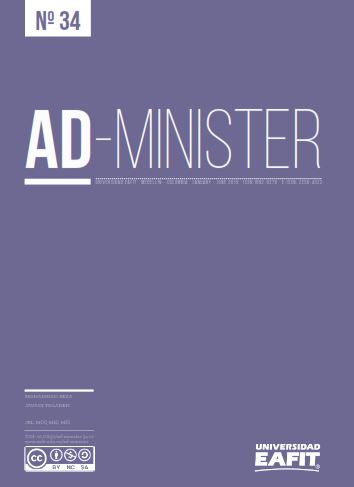Behavioral Economy and Public State Aids: Why Iranians Refused to Give Up on Government Subsidy Receipt? (A Multiple Prisoner’s Dilemma Game)
Main Article Content
Keywords
Subsidy reform scheme, Prisoner’s dilemma game, Refusal to give up on subsidy receipt, Lie, Iran
Abstract
This article uses the game theory, more specifically multiple prisoner’s dilemma game, to analyze why Iranians refused to give up on receiving public subsidies in April 2014, in spite of frequent requests of the government. Sample of study consists of two main groups: the ones who were not dependent on government subsidy but were applying for it; and the ones who did not depend either but had fraudulently pretended to depend on government subsidy. some suggestions are presented such as to define chicken game and not prisoner’s dilemma game as the main game.
Downloads
References
Chardin, J. (1686). Journal du voyage du Chevalier Chardin en Perse (five volumes), translated by Eqbal Yaghmaei, Tehran: Toos
Elffers, H. (2000) ."But Taxpayers Do Cooperate!" . In: Van Vugt, M. & M. Snyder & T. R. Tyler & A. Biel (eds.).Cooperation in Modern Society: Promoting The Welfare of Communities, States and Organizations. London: Routedge. pp. 184-194.
Friedman, M; Friedman, Rose (1988). Free to Choose, translated by Hossein Hakimzadeh Jahromi. Tehran: Ed. Parsi
Ghaffari, Gholam Reza (2014), "Socio-Mental Preferences and Social Discipline", Gozaresh-e Vaziat-e Ejtemaei-e Keshvar; Ketab-e Chekideha (A Report on Social Conditions; Book of Abstracts). Tehran: State Social Council, pp. 95-100
Hashemi, Sarvosadat (2007), Nazarsanji-e Telefoni az Mardom-e Tehran Darbare-ye Doroughgooyee (Phone Interview With Tehran Residents About Lying), Hamshahri Media Studies and Research Center
Hirschman, Albert, The Passions and the Interests; Political Arguments for Capitalism before Its Triumph, translated by Mohammad Maljoo (2000). Tehran: Ed. Shirazeh
Javadi Yeganeh, Mohammad Reza (2009), "Simulation: a Method to Study Social Behaviors", Motaleat-e Ejtemaei-e Iran (Iran Social Studies), vol. 4, pp. 132-160
Javadi Yeganeh, Mohammad Reza (2008), "Sociological Approach in Reasonable Choice Theory", Rahbord Farhang (Cultural Strategy), vol. 3, pp. 33-64
Jolls, Christine & Cass R. Sunstein & Richard H. Thaler (1998) “A Behavioral Approach to Law and Economics” 50 Stanford Law Review. 1471-1550.
Kahneman, D. (2003). Maps of bounded rationality: Psychology for behavioral economics. American economic review, 93(5), 1449-1475.
Kahneman, D., & Tversky, A. (1979). pProspect Theory: An Analysis of Decisions under Risk, qEconometrica. March, 47(2), 2635291.
Karl Brugsch, Heinrich; Im lande der Sonne (1995), translated by Majid Jalilvand. Tehran: Ed. Markaz
Khajeheian, Datis. (2018). Enterprise Social Media: Ethnographic Research on Communication in Entrepreneurial Teams. International Journal of E-Services and Mobile Applications (IJESMA), 10(1), 34-46.
Malcolm, Sir John (1815), The History of Persia, translated by Mirza Esmaeil Heyrat (two volumes) (2001). Tehran: Ed. Afsoon, pp. 656-877
McKenzie-Mohr, Doug; Smith, William: Fostering Sustainable Behavior: An Introduction to Community-Based Social Marketing, translated by Mohammad Reza Javadi Yeganeh and Ali Reza Sadeqi (2013), Tehran: Ed. Elm
Mohadesi, Hassan (2009): Barresi-e Vaziat-e Sedaqat-e Omoumi va Rahkarhay-e Erteqay-e An (Review of General Situation of Honesty and Ways to Improve It): Secretariat of Supreme Council of Cultural Revolution. In persian
Trezel, Camille-Alphonse, Voyage en Arménie et en Perse, fait dans les années 1805 et 1806, par P.-Amédée Jaubert, Paris, Pélicier et Neveu, 1821 translated by Abbas Eqbal Ashtiani (1982), Tehran: Ed. Farhangsara (Yasavoli)
Xenophon: Expedition with Cyrus, translated by Reza Mashayekhi (1963). Tehran: Translation and Printing Center
Zonis, Marvoin, The Political Elite of Iran, translated by Parviz Salehi and Soleyman Aminzadeh and Zahra Labadi (2008). Tehran: Ed. Chapakhsh

